New NCAA Time Demand Legislation Won't Change Much For Swimmers
New NCAA Time Demand Legislation Won't Change Much For Swimmers
Mitchell Forde, a senior swimmer for the University of Missouri, discusses recent NCAA legislation on student-athlete time demands and how it impacts swimmers.

Mitchell Forde, a senior swimmer for the University of Missouri, discusses recent NCAA legislation on student-athlete time demands and how it impacts swimmers.
There's an unspoken tradition at the semi-annual compliance meeting my Missouri swimming and diving teammates and I attend: The leader of the meeting will remind us that during the "offseason," we can only be required by coaches to work out for eight hours per week, and the swimmers laugh out loud.
We laugh not because we are upset, but because we feel like we've earned the right (and also because, as far as we can figure, it has happened at every compliance meeting ever and the tradition must be kept alive). We do not believe our team is breaking the NCAA's rules, and most of us are not upset by how hard we train. It is our little way of letting someone else, even just a handful of staffers from the compliance office, know how far we push ourselves on a daily basis. "You and I both know that no rule will change how hard we work," the laughter says.
I want to emphasize that Missouri, in addition to almost every other college swimming program, really isn't violating NCAA rules by practicing nine times per week outside of the competition season. The reason: the NCAA's "safety exception."
Since we practice for more than eight hours per week prior to the season beginning in October and after the NCAA Championships in March, most of our training during those times is labeled "voluntary." For most college sports, coaches aren't allowed to be present at voluntary workouts. But the safety exception allows the coaches of some sports, including swimming, to be present for those practices due to, you guessed it, safety concerns.
According to Bob Nolte, assistant director of compliance education at Missouri, since swimming poses an inherent drowning risk, coaches can act as supervisors during optional workouts. They are not allowed to give specific stroke instruction unless it is to correct an unsafe form. They may present swimmers with a workout but are not supposed to "conduct" it.
Nolte said he realizes that this can make an optional workout feel less than optional. "We've heard from students that it makes it seem like it's still just practice," Nolte said. "Especially for swimmers because you have your workout written out, the coaches don't have to tell you much during it."
So, why is this relevant right now? A few weeks ago, the NCAA passed three new rules seeking to address time demands on student-athletes. The main changes: student-athletes' required day off each week cannot contain travel to or from a competition, required recruiting activities, or other mandatory activities (like a compliance meeting); student-athletes must be given at least eight hours off overnight between required activities; and students must receive an additional 21 days off during the calendar year, with seven of those coming at the conclusion of the competition season.
As Nolte explained these new provisions to me, it seemed like they would change a lot, especially the additional 21 days off. That is, until we started getting into the various exceptions and loopholes. For instance, athletes can forego the seven required days off at the end of a competition season if they are preparing for "elite international competition," such as this summer's World Championships. And the other 14 days off can come during holiday breaks. And, of course, if a coach wants to hold practice on a travel day or can't squeeze in enough other days off, he or she can simply make a workout "optional" but still show up due to the safety exception.
Despite the recent push for time demands on student-athletes to be rolled back, Nolte does not believe the safety exception will be altered any time soon. If anything, he believes coaches from other sports will seek a safety exception of their own. He says that will put more pressure on compliance departments on the enforcement front -- making sure optional practices are truly optional.
"One of the reasons we educate the student-athletes twice a year is to say, hey, we know how this works," Nolte said. "If you were to not be able to attend an optional practice -- it's truly optional and we're not counting that -- you can't be punished."
This is how our coaches explain it to us: Everything is optional. We train the amount we do, because it is beneficial to our performance. If we miss a few practices, we certainly aren't going to be kicked off the team, but if we only work out for eight hours a week for half the calendar year, we won't be competitive at the end of the season. As my four years as a student-athlete come to an end, I wouldn't have had it any other way. The offseason time demand rule doesn't represent the reality of being a Division I swimmer, and we don't want it to. That's why we laugh at it.
There's an unspoken tradition at the semi-annual compliance meeting my Missouri swimming and diving teammates and I attend: The leader of the meeting will remind us that during the "offseason," we can only be required by coaches to work out for eight hours per week, and the swimmers laugh out loud.
We laugh not because we are upset, but because we feel like we've earned the right (and also because, as far as we can figure, it has happened at every compliance meeting ever and the tradition must be kept alive). We do not believe our team is breaking the NCAA's rules, and most of us are not upset by how hard we train. It is our little way of letting someone else, even just a handful of staffers from the compliance office, know how far we push ourselves on a daily basis. "You and I both know that no rule will change how hard we work," the laughter says.
I want to emphasize that Missouri, in addition to almost every other college swimming program, really isn't violating NCAA rules by practicing nine times per week outside of the competition season. The reason: the NCAA's "safety exception."
Since we practice for more than eight hours per week prior to the season beginning in October and after the NCAA Championships in March, most of our training during those times is labeled "voluntary." For most college sports, coaches aren't allowed to be present at voluntary workouts. But the safety exception allows the coaches of some sports, including swimming, to be present for those practices due to, you guessed it, safety concerns.
According to Bob Nolte, assistant director of compliance education at Missouri, since swimming poses an inherent drowning risk, coaches can act as supervisors during optional workouts. They are not allowed to give specific stroke instruction unless it is to correct an unsafe form. They may present swimmers with a workout but are not supposed to "conduct" it.
Nolte said he realizes that this can make an optional workout feel less than optional. "We've heard from students that it makes it seem like it's still just practice," Nolte said. "Especially for swimmers because you have your workout written out, the coaches don't have to tell you much during it."
So, why is this relevant right now? A few weeks ago, the NCAA passed three new rules seeking to address time demands on student-athletes. The main changes: student-athletes' required day off each week cannot contain travel to or from a competition, required recruiting activities, or other mandatory activities (like a compliance meeting); student-athletes must be given at least eight hours off overnight between required activities; and students must receive an additional 21 days off during the calendar year, with seven of those coming at the conclusion of the competition season.
As Nolte explained these new provisions to me, it seemed like they would change a lot, especially the additional 21 days off. That is, until we started getting into the various exceptions and loopholes. For instance, athletes can forego the seven required days off at the end of a competition season if they are preparing for "elite international competition," such as this summer's World Championships. And the other 14 days off can come during holiday breaks. And, of course, if a coach wants to hold practice on a travel day or can't squeeze in enough other days off, he or she can simply make a workout "optional" but still show up due to the safety exception.
Despite the recent push for time demands on student-athletes to be rolled back, Nolte does not believe the safety exception will be altered any time soon. If anything, he believes coaches from other sports will seek a safety exception of their own. He says that will put more pressure on compliance departments on the enforcement front -- making sure optional practices are truly optional.
"One of the reasons we educate the student-athletes twice a year is to say, hey, we know how this works," Nolte said. "If you were to not be able to attend an optional practice -- it's truly optional and we're not counting that -- you can't be punished."
This is how our coaches explain it to us: Everything is optional. We train the amount we do, because it is beneficial to our performance. If we miss a few practices, we certainly aren't going to be kicked off the team, but if we only work out for eight hours a week for half the calendar year, we won't be competitive at the end of the season. As my four years as a student-athlete come to an end, I wouldn't have had it any other way. The offseason time demand rule doesn't represent the reality of being a Division I swimmer, and we don't want it to. That's why we laugh at it.
Related Content
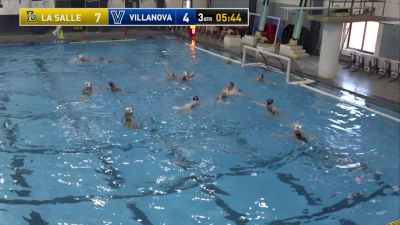 Replay: Le Salle vs Villanova - WWP - 2024 La Salle vs Villanova | Apr 7 @ 3 PM
Replay: Le Salle vs Villanova - WWP - 2024 La Salle vs Villanova | Apr 7 @ 3 PMApr 7, 2024
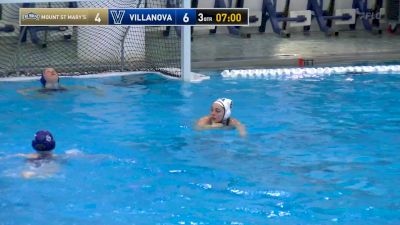 Replay: Mount St. Mary's vs Villanova - WWP - 2024 Mount St. Mary's vs Villanova | Apr 6 @ 7 PM
Replay: Mount St. Mary's vs Villanova - WWP - 2024 Mount St. Mary's vs Villanova | Apr 6 @ 7 PMApr 7, 2024
 Replay: VMI vs Villanova - WWP - 2024 VMI vs Villanova | Apr 6 @ 11 AM
Replay: VMI vs Villanova - WWP - 2024 VMI vs Villanova | Apr 6 @ 11 AMApr 6, 2024
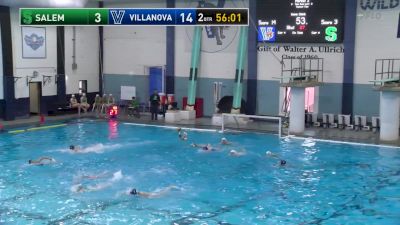 Replay: Salem University vs Villanova | Mar 9 @ 9 AM
Replay: Salem University vs Villanova | Mar 9 @ 9 AMMar 9, 2024
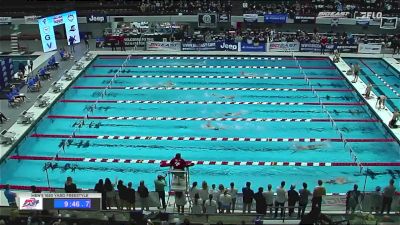 Replay: Big East Swimming Championship | Mar 2 @ 3 PM
Replay: Big East Swimming Championship | Mar 2 @ 3 PMMar 3, 2024
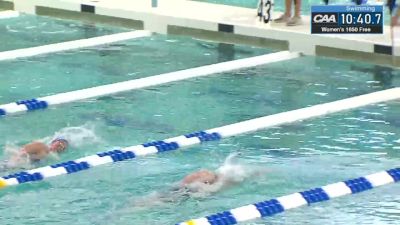 Replay: CAA Champs Prelims (AM) & Finals (PM) | Mar 2 @ 3 PM
Replay: CAA Champs Prelims (AM) & Finals (PM) | Mar 2 @ 3 PMMar 3, 2024
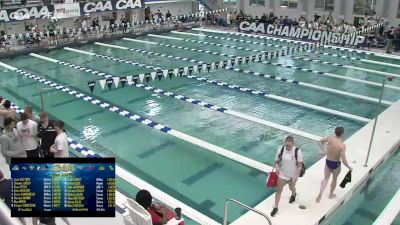 Replay: CAA Champs Prelims (AM) & Finals (PM) | Mar 2 @ 10 AM
Replay: CAA Champs Prelims (AM) & Finals (PM) | Mar 2 @ 10 AMMar 2, 2024
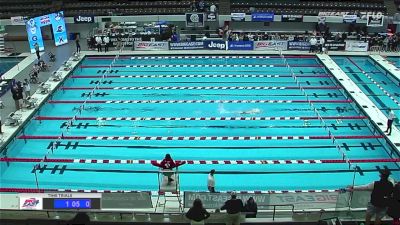 Replay: Big East Swimming Championship | Mar 2 @ 10 AM
Replay: Big East Swimming Championship | Mar 2 @ 10 AMMar 2, 2024
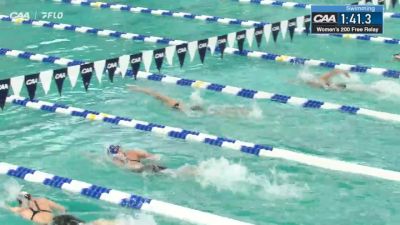 Replay: CAA Champs Prelims (AM) & Finals (PM) | Mar 1 @ 5 PM
Replay: CAA Champs Prelims (AM) & Finals (PM) | Mar 1 @ 5 PMMar 2, 2024